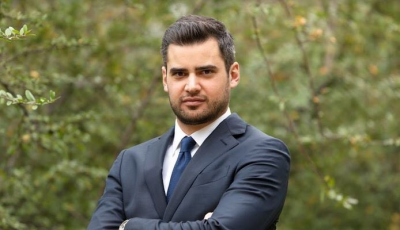Regardless of whether government formation precedes or follows the election of a president, it is certain that the glow of the presidential election has begun to heat up the political scene, and discussions about the names of candidates for the Baabda Palace are instinctively taking precedence over discussions concerning the names of ministers who will enter the potential government.
With just weeks remaining until the constitutional deadline for the presidential election, it is clear that the name of Sleiman Frangieh, head of the Marada Movement, remains among the frontrunners for Baabda, without ruling out the possibility that the dynamics could shift once again, changing the order of competitors as the finish line approaches.
The luncheon in Lqaluk between Deputy Jibran Bassil, head of the Free Patriotic Movement, and Frangieh's ally, Deputy Farid Khazen, has sparked political imaginations, while insiders emphasize that the significance of the meeting has been exaggerated, notwithstanding its importance, pointing out that Khazen visited Frangieh the day before to update him on the results of his meeting with Bassil.
Perhaps most pleased with the improvement in the relationship between the Free Patriotic Movement and the Marada Movement is Hezbollah, as this would facilitate its efforts, when the moment of truth arrives, to coordinate with its allies on the name of the presidential candidate. It is likely that the party will prioritize the election of a president allied with the resistance before considering any alternative scenario if the first option proves difficult. Thus, between Frangieh and Bassil, it will likely choose the candidate with the better chance of success, meaning the one most capable of securing the parliamentary quorum and winning the required 65 votes after the first session.
Deputy Tony Frangieh told "Al-Jumhuriya" that there had been prior communication between Bassil and Khazen, which was activated through their direct meeting aimed at breaking the remaining ice and continuing the reconciliation that began with the Frangieh-Bassil meeting under the auspices of Hezbollah Secretary-General Hassan Nasrallah. He urges placing the Lqaluk meeting in its realistic context, clarifying that the presidential issue was discussed only briefly, “but it was not the main course at the lunch table.”
He notes that another meeting between Bassil and Frangieh is possible when necessary, stating that there are no longer obstacles preventing it from happening at any time. He adds that all possibilities are feasible and that there is no issue on this front.
Frangieh observes that the overall atmosphere at this stage indicates that his father is advancing in the presidential race, “and many agree that his name is among the seriously proposed names, but it is still early to draw final conclusions, as we are still in the stage of shaping the picture.”
He continues: While it is true that Sleiman Frangieh represents a clear political line, he simultaneously possesses the ability to communicate with all Lebanese parties and engage with them in a flexible and non-offensive manner, “and this is one of his strengths.”
Frangieh considers that the relationship with the Free Patriotic Movement is improving, “but it is not yet known how far this will reach or whether it will lead to a presidential understanding or not.” He points out that external intersections traditionally facilitate the election of the President of the Republic in Lebanon, “but ultimately it is necessary to return to the internal scene to secure the required parliamentary majority for electing the president, which is why Lebanese political forces must take responsibility.”




